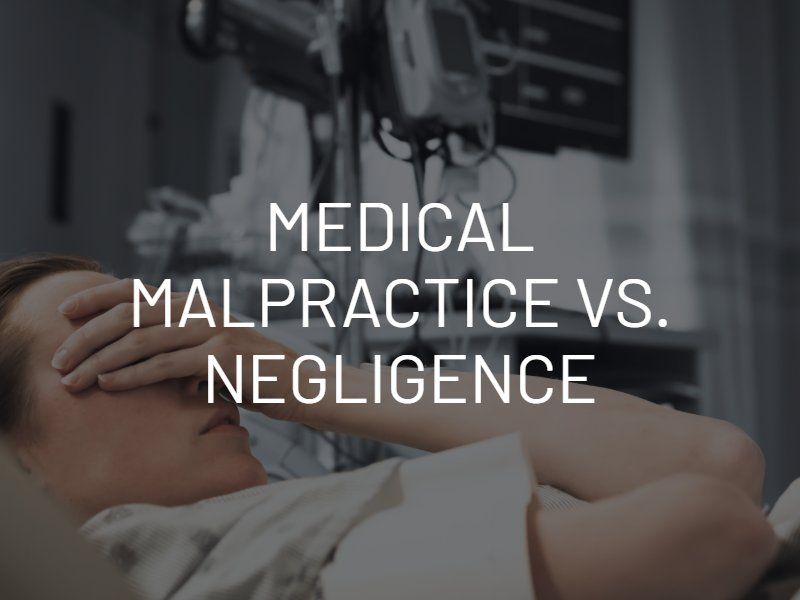During a medical malpractice claim in West Virginia, you may hear the term medical negligence and medical malpractice used interchangeably. The two terms, however, are not identical. They technically have two different definitions. Medical malpractice is the overarching practice area, while medical negligence is just one key element of a medical malpractice claim.
Negligence vs. Medical Malpractice
Negligence is the basis on which most personal injury lawsuits arise. Negligence is also the key allegation behind medical malpractice cases. The plaintiff’s claim is that a medical practitioner or facility was negligent in its handling of the patient or the medical scenario. It is up to the plaintiff or his or her Charleston, West Virginia medical malpractice lawyer to prove the defendant’s negligence caused the injuries in question during a personal injury lawsuit. The same is true for medical malpractice cases.
Negligence as a legal theory can refer to any breach of duty of care in a particular situation. A driver, for example, can be guilty of negligence if he or she drives drunk and causes a collision. Malpractice, on the other hand, refers specifically to negligence in the medical field. When a medical practitioner, lawyer, or other professional negligently or criminally fails to uphold the standards of care for his or her profession, he or she may be guilty of malpractice.
Medical malpractice explicitly refers to the malpractice of a medical professional or healthcare provider. Professional negligence from a doctor, nurse, dentist, obstetrician, chiropractor, hospital, etc. that injures a patient can constitute medical malpractice. Medical negligence, on the other hand, refers to the precise act of negligence or breach of duty of care. Medical negligence is one of the necessary elements of a successful medical malpractice claim.
Examples of Medical Negligence
Medical negligence can take many shapes and forms. A doctor, surgeon, nurse, or hospital could be guilty of many different types of medical negligence. The most common types include diagnosis errors, medication mistakes, surgical errors, anesthesia errors, poor patient care, emergency room mistakes, malfunctioning equipment, birth injuries, and lack of informed patient consent. Any action or omission that a reasonable and prudent practitioner would not have made in the same circumstances could constitute medical negligence.
Four Elements of a Medical Malpractice Lawsuit
In West Virginia, plaintiffs need four main elements to obtain compensation for their injuries during a medical malpractice claim. It is up to the plaintiff or the plaintiff’s attorney to provide evidence establishing these four key elements. Medical negligence is just one of these four elements, not the entire malpractice claim.
- A doctor-patient relationship existed. The plaintiff and defendant must have had a doctor-patient relationship at the time of the incident in question. A doctor giving advice off the clock to a friend would not constitute a professional relationship.
- The doctor breached the duties of the relationship. This is the element of medical negligence. The doctor must have been negligent in fulfilling the accepted standards of duty. Examples include misdiagnosis, medication errors, and poor patient care.
- The doctor’s medical negligence caused the injuries. The defendant’s medical negligence must be the main cause of the patient’s injuries. If a terminal illness caused the damages and not the delayed diagnosis, for example, the defendant would not be liable.
- Damages to the patient resulted. Finally, the medical negligence must have caused the patient real, compensable damages. These may include physical injuries or illness, medical expenses, lost wages, and pain and suffering.
Medical negligence is one element necessary to prove a case, while medical malpractice refers to the entirety of the claim. Hiring a lawyer can make proving a malpractice case much easier on a plaintiff. The injured party can focus on healing while his or her attorney takes care of the burden of proof.








